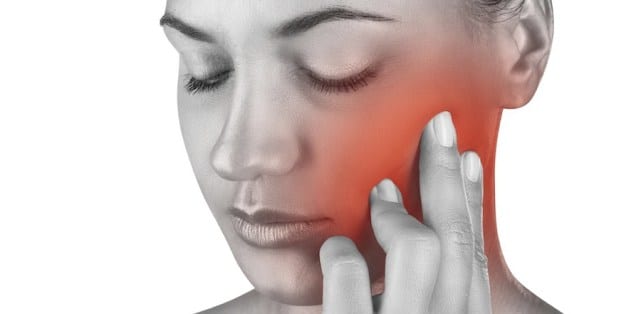TMJ Treatment An Overview
Dr. Welinsky offers comprehensive dental services in Towson, MD, including diagnosis and treatment for complex dental problems such as temporomandibular disorders (TMD). Commonly called TMJ, a TMD can have a variety of causes, most of which are related to an imbalance in the bite which puts undue pressure on the jaw joints.
TMJ often results in pain, headaches, and clicking or popping of the jaw point. TMJ can also lead to teeth grinding and/or clenching, which can cause damage to the teeth and gums over time. Dr. Welinsky also provides restorative dentistry treatments to new and existing patients in and around Towson, Maryland.

Common Symptoms of TMJ
In almost all cases, a TMJ disorder will cause tooth wear and may contribute to tooth decay and/or (gum) disease. Common TMJ Symptoms include:
- Teeth grinding or clenching, often characterized by tooth wear
- Frequent headaches
- Earaches
- Neck and shoulder pain
- Limited mobility in the jaw
- Clicking or popping when opening or closing jaw
Schedule a Consultation and Dental Exam Today
Are you experiencing jaw pain? Specifically when eating? Headaches? Unusual tooth wear? You may be suffering from TMJ and a consultation with Dr. Welinsky is highly recommended. We welcome new patients to join our family practice.
Contact us at 410-449-7656 or use our online appointment request form and we will contact you shortly. Our Baltimore, MD area dentist office is convenient for patients in Towson, West Towson, Parkville, and many suburbs in Baltimore, MD.
TMJ Treatment What to Expect
Dr. Welinsky will evaluate all aspects of your occlusal system during a thorough dental exam to determine the cause of your bite problem and appropriate treatment. Dr. Welinsky can identify any deficiency in the bite or stress in the jaw joints, using this information to personalize your treatment and ensure that your results will provide a lasting, comfortable smile.
Diagnosis & Treatment Options
Mouth Guard and Splint Therapy
As a conservative option, Dr. Welinsky may often recommend the use of a mouth guard or dental splint to alleviate specific symptoms of TMJ disorder. A mouth guard or splint is often the first step, used early in treatment and not needed as a long-term solution. A dental split can be helpful to help identify a comfortable and stable bite position.
Bite Correction
This process is a series of adjustments made to the teeth which may include:
- Removing tooth structure
- Applying dental crowns
- Invisalign treatment
- Dental implants
Invisalign
If the teeth are not in the proper position, Invisalign may be needed to reposition the teeth, allowing them to fit together harmoniously. Dr. Welinsky is a Baltimore area Invisalign provider and may recommend Invisalign as an option when appropriate for restoring balance to the bite and supporting long-term dental health.
Restorative Dentistry
In cases where teeth have been significantly worn and damaged restorative dentistry may be needed to bring the teeth back to their proper health and beauty. Dr. Welinsky may use dental crowns, or cosmetic tooth bonding to restore your teeth to create proper tooth contact.

